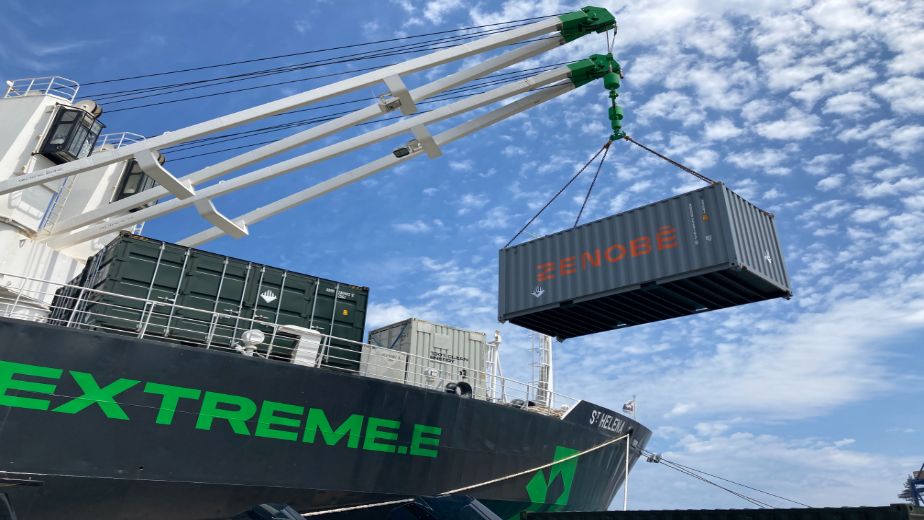London: UK’s premier independent owner and operator of battery storage and EV fleet specialists, Zenobe will be offering a second-life battery to supply power to Extreme E’s site operations which includes the team garages and critical broadcast infrastructure, facilitating the Championship achieve its net-zero target and underlining the power of a circular economy.
The battery’s first life had itself operating in Sweden, as it helped in bringing cleaner air to Stockholm as it powered an all-electric bus in the heart of the city. In its new life, the battery will make use of its remaining unexploited capacity to power site operations at the Extreme E and will travel around the world powering the Championship as it will race in locations that have been adversely affected by climate change.
The former bus battery, now beginning its new life is on board at the St Helena Extreme E’s floating centerpiece, which is also due to reach Dakar today, all set to be put to work by Extreme E in Lac Rose, Senegal. It will be operating in some of the world's most extreme environments, which includes the bitter cold of the Greenland Arctic, the heat of the West African coastline, and the close humidity of the Amazon rainforest.

Zenobe, as the Official Energy Storage Supplier for the maiden edition of Extreme E, with it's second-life battery will enable the championship to maximise the consumption of renewable energy generated onsite, to help the series sustainably reinvent motorsporting operations. The battery, in its first life on a bus, saved nearly a thousand tonnes of CO2. Now it will help Extreme E series save approximately fifteen tonnes of CO2 per year, in its second life.
Zenobe, with this path-breaking second-life battery, is backing Extreme E’s mission to encourage a more sustainable world. By extending the battery's life by many years, the project underlines the enormous capabilities of batteries, even after their first life. As businesses around the world look to decrease emissions and go green, this second-life battery project highlights the importance of a circular economy and is the first of Zenobe's many upcoming second-life projects 2021.
Steven Meersman, Co-Founder and Director at Zenobe, said: “We are proud to be partnering with Extreme E, an organisation that shares our passion for using electrification to enable a cleaner, greener future.
“Reusing is absolutely central to this. At Zenobe we are dedicated to advancing battery application with a particular focus on what happens to EV batteries at the end of their lives on vehicles. Our growing second-life battery operations solve this issue, as we reuse batteries from our electric fleets across Europe and close the loop.

“As the world continues to drive towards its net-zero goal, Zenobe is committed to leading the charge towards a circular economy, embracing second-life battery technology and championing its vast capabilities.”
Alejandro Agag, Founder and CEO of Extreme E said: “We are proud to be working with Zenobe to provide a second life for this former bus battery.”
“As a series we are committed to minimising our carbon impact at all levels, and becoming a platform for renewable energy solutions which have wider world use. This battery will now play a very important role in powering our paddock operations, ensuring that it is not just on the race track where we can showcase our low carbon solutions to everyday issues.”
The Extreme E season began with the debut race in Saudi Arabia on April 3 and will now travel to Senegal (May 29-30), Greenland (August 28-29), Brazil (October 23-24) and Patagonia (December 11-12).













